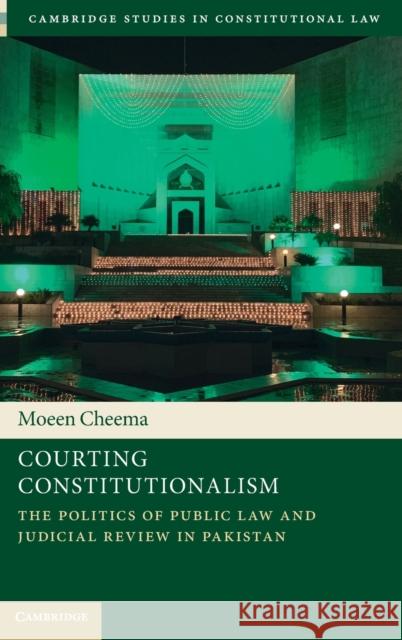Courting Constitutionalism: The Politics of Public Law and Judicial Review in Pakistan » książka
topmenu
Courting Constitutionalism: The Politics of Public Law and Judicial Review in Pakistan
ISBN-13: 9781108831888 / Angielski / Twarda / 2021 / 256 str.
Courting Constitutionalism: The Politics of Public Law and Judicial Review in Pakistan
ISBN-13: 9781108831888 / Angielski / Twarda / 2021 / 256 str.
cena 497,70 zł
(netto: 474,00 VAT: 5%)
Najniższa cena z 30 dni: 428,18 zł
(netto: 474,00 VAT: 5%)
Najniższa cena z 30 dni: 428,18 zł
Termin realizacji zamówienia:
ok. 16-18 dni roboczych.
ok. 16-18 dni roboczych.
Darmowa dostawa!
Presents a deeply contextualized account of public law and judicial review in Pakistan.











